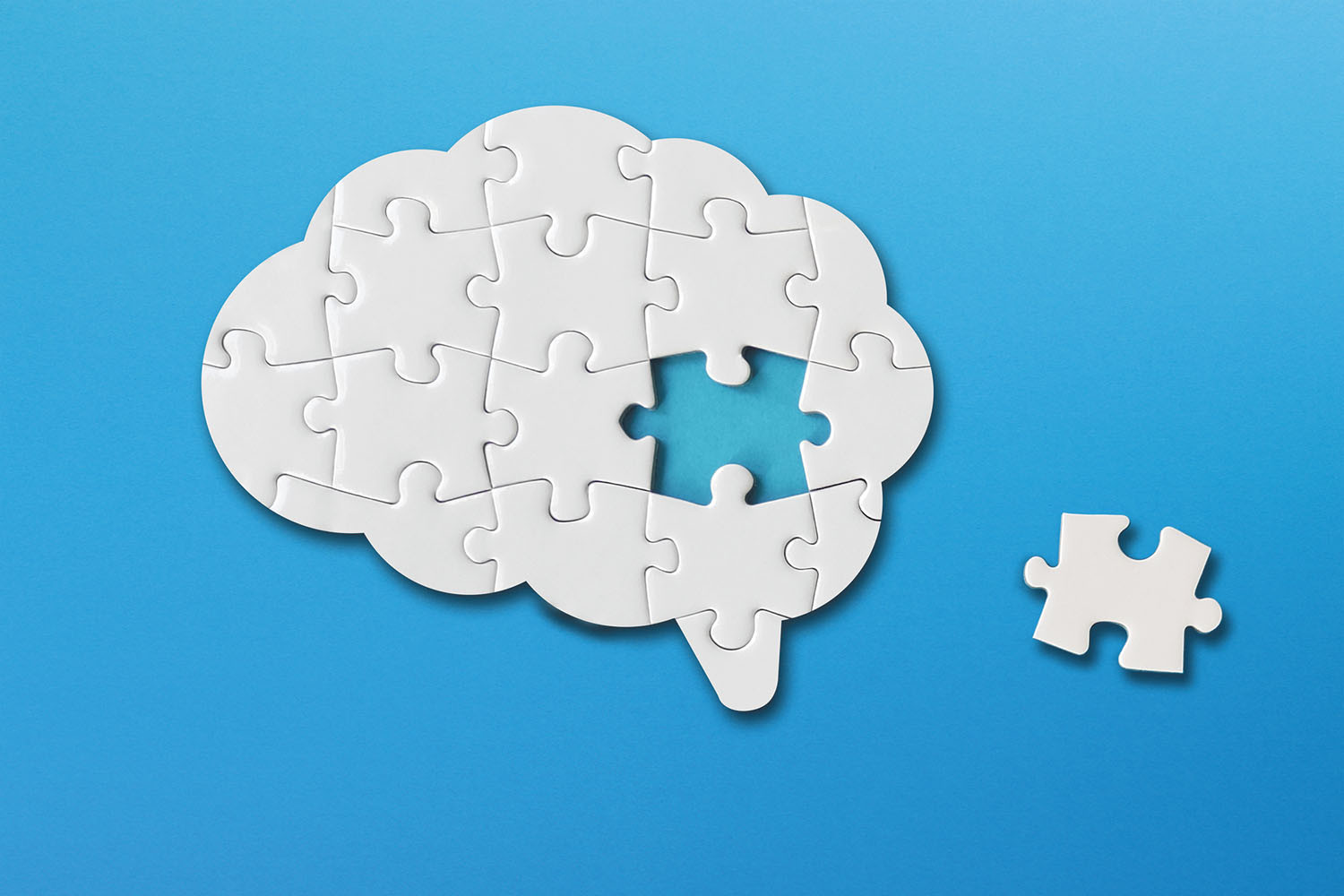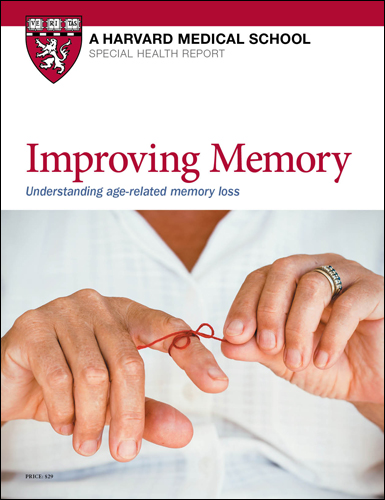Take a cue for better memory recall
Do you sometimes struggle to remember names, details, or words? Give your brain some cues.
- Reviewed by Howard E. LeWine, MD, Chief Medical Editor, Harvard Health Publishing; Editorial Advisory Board Member, Harvard Health Publishing

We all have those so-called senior moments. You know a person, but try as you might, can't recall his or her name. Or, during a conversation, you know what you mean to say but can't find the right word to express your thought. Or you can't remember something you recently learned.
This tip-of-the-tongue phenomenon, called "blocking," is related to diminished memory recall. "Everyone has these issues at some point, but it isn't cause for concern unless it becomes a frequent occurrence or affects quality of life," says Lydia Cho, a psychologist and neuropsychologist with Harvard-affiliated McLean Hospital.
Brain changes
The ability to easily recall information tends to weaken as the brain ages. "The brain changes and declines just like any other body part," says Cho.
The average brain's weight and volume shrink about 5% per decade after age 40; the shrinkage speeds up after age 70. Over time, the number of neurotransmitters — the messenger molecules that carry signals between brain cells — decrease in number and become less effective. "All of this can slow your brain's processing speed," says Cho.
Drops in levels of hormones, such as androgens (which give men their manly characteristics) and serotonin, also can affect memory. Yet another contributor to poor recall is a simple lack of memory practice. "You may depend a lot on your spouse to fill in the blanks, so there is no need to work to recall the information you need," says Cho.
This doesn't mean you can't improve your recall abilities. Certain conditions and habits — like stress, depression, an unhealthy diet, insomnia, lack of exercise, and prolonged isolation — can contribute to blocking. "All of these are linked with decreased memory, and addressing them first can support overall brain function, increase hormone levels, and improve recall," says Cho.
Giving hints
When situations arise where you struggle to retrieve information, try cueing, a method that gives your brain "hints" about what you want to recall, like a director whispering lines to an actor on stage. Here are three cueing strategies you can try.
Create associations. When you learn something new, immediately relate it to something you already know. A strong association can increase the brain's ability to recall it later. For example, when meeting someone, try connecting the name to something personal, like the individual's appearance, job, background, hobby, or spouse.
You also can remember names by making associations with initials. For instance, if you meet someone named Larry Anderson, you might link the initials L.A. to the abbreviation for Los Angeles, with which you are already familiar. Or come up with a catchy rhyme for the name.
Association also works for more complex information, like a sequence of numbers. Instead of trying to remember the number 221035, break it into sections and link each to a memory cue. For instance, 22 could remind you of the book Catch-22, and 10 might be your house number, while 35 was your age when your oldest child was born.
Look, snap, connect. This technique is about paying attention in the moment of learning something new and then using visualization to solidify the memory. "Look" refers to focusing on what you want to remember. "Snap" means taking a mental snapshot related to the information. "Connect" involves linking the image and the information.
For instance, suppose you need to remember you parked in section 3B of a parking garage. First, focus on the main information — section 3B (the "look"). Next, create a mental image — say, three bumblebees (the "snap"). Then, link the image to the information by imagining the bees buzzing around your car (the "connect"). When you later think, "where did I park my car?" your brain will likely call up the picture, and you will remember 3B.
Retrieving words and memories. When you're searching for the right word or memory during a conversation, pausing gives your brain extra time to send the necessary signals. "This also can help your brain focus only on obtaining that information," says Cho.
Another conversation strategy is to go in the opposite direction: skip over the mental barrier and keep talking. As you continue to speak, you give your brain time to find the information. "Another option is to begin describing the word or information you are searching for, which can help your brain locate the message you want to convey," says Cho.
When you can't find the right word while speaking, try to use a word with a similar meaning. For instance, if you want to describe something as "superb" but hit a mental roadblock, instead of forcing it, aim for a familiar term that still gets your point across, like "terrific," "amazing," or "wonderful."
Image: © Makhbubakhon Ismatova/Getty Images
About the Author

Matthew Solan, Executive Editor, Harvard Men's Health Watch
About the Reviewer

Howard E. LeWine, MD, Chief Medical Editor, Harvard Health Publishing; Editorial Advisory Board Member, Harvard Health Publishing
Disclaimer:
As a service to our readers, Harvard Health Publishing provides access to our library of archived content. Please note the date of last review or update on all articles.
No content on this site, regardless of date, should ever be used as a substitute for direct medical advice from your doctor or other qualified clinician.
















